In recent years, the trade relationship between China and Algeria has flourished, becoming a vital part of Algeria’s economy. With Algeria being one of Africa’s largest markets, the demand for imported goods from China has significantly increased. In this blog, we will explore the various aspects of door-to-door shipping from China to Algeria, providing an in-depth understanding of this logistics service and its benefits for businesses looking to streamline their import processes.
Related Article : Shipping From China To Algeria
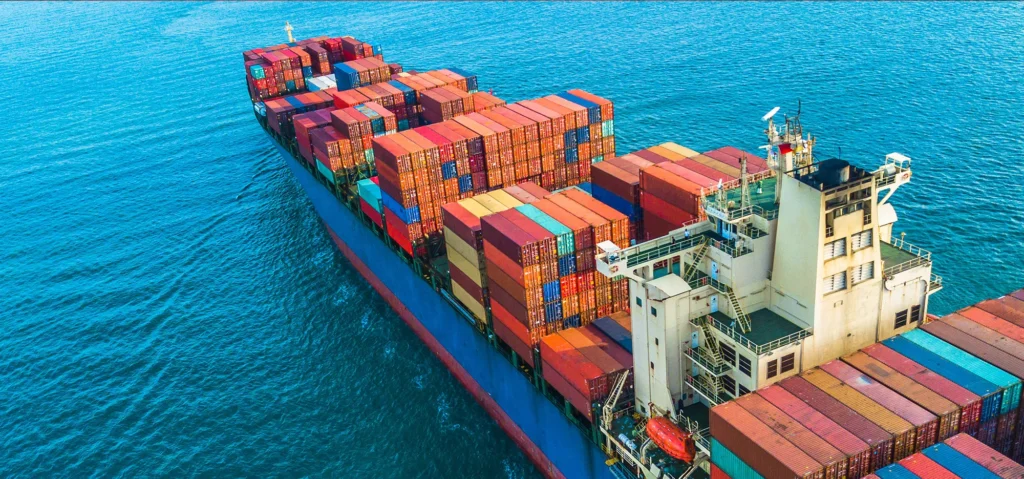
What is Door-to-Door Shipping?
Definition and Explanation of the Service
Door-to-door shipping refers to a comprehensive logistics service that facilitates the entire process of transporting goods from the seller’s location directly to the buyer’s address. This service encompasses various transportation methods, including ocean freight, air freight, and land transport, ensuring a seamless transfer of goods across borders.
Key Components of Door-to-Door Shipping
The key components of door-to-door shipping include:
- Pickup Service: The logistics provider collects the goods from the seller’s location.
- Transportation: The goods are transported via chosen methods, whether by land, sea, or air.
- Customs Clearance: The logistics provider manages all necessary customs documentation and clearance processes.
- Final Delivery: The goods are delivered directly to the buyer’s specified address.
DDU and DDP
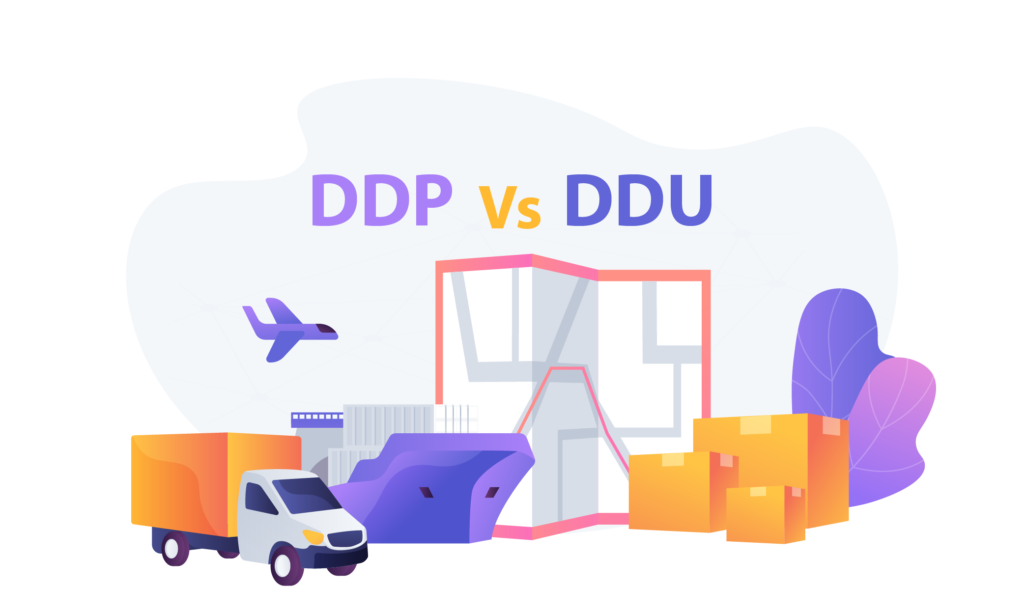
Understanding the terms Delivery Duty Unpaid (DDU) and Delivery Duty Paid (DDP) is crucial when utilizing door-to-door shipping services.
- DDU means that the seller is responsible for shipping the goods but does not cover the import duties and taxes in Algeria. The buyer will need to handle these costs upon arrival.
- DDP, on the other hand, indicates that the seller takes full responsibility for shipping, including all duties and taxes, resulting in a more straightforward experience for the buyer.
Advantages of Door-to-Door Shipping
Convenience and Time-Saving
One of the primary advantages of door-to-door shipping is the unparalleled convenience it offers. Businesses can save valuable time by outsourcing the logistics process, allowing them to focus on other core activities. The logistics provider handles all aspects, from pickup to final delivery, ensuring a hassle-free experience.
Reduced Handling and Potential for Damage
With traditional shipping methods, goods often pass through multiple hands, increasing the risk of damage or loss. Door-to-door shipping minimizes handling as the goods are transported directly from the seller to the buyer, significantly lowering the potential for damage during transit.
Simplified Customs Clearance Process
Navigating customs regulations can be complex and time-consuming. Door-to-door shipping services often include expert customs clearance, ensuring that all necessary documentation is completed correctly. This simplification reduces the chances of delays at the border, allowing for a smoother import process.
Single Point of Contact for the Entire Shipment
Another significant benefit of door-to-door shipping is having a single point of contact throughout the shipping process. This simplifies communication and coordination, as businesses only need to deal with one logistics provider. The provider manages all logistics, customs, and transportation needs, streamlining the entire operation and providing peace of mind for the importer.
By choosing a reliable provider like Dantful International Logistics, you can ensure a highly professional, cost-effective, and high-quality one-stop solution for your door-to-door shipping needs.
Shipping Methods from China to Algeria
When considering door-to-door shipping from China to Algeria, businesses have several shipping methods to choose from, each with its own advantages and suitability based on the nature of the shipment and time constraints.

Air Freight Door-to-Door Shipping
Air freight is one of the fastest methods for transporting goods, making it ideal for businesses that require urgent shipments. This method allows for quick delivery times, often within a few days. With door-to-door air freight shipping, the logistics provider manages the entire process, including pickup, customs clearance, and delivery to the final destination. Although air freight is generally more expensive than sea freight, it provides unmatched speed and efficiency, especially for high-value or time-sensitive goods.
Sea Freight Door-to-Door Shipping
For businesses looking to ship larger volumes of goods or reduce costs, sea freight is an excellent option. This method can be broken down into two categories:
- FCL (Full Container Load): FCL shipping is utilized when a shipment occupies an entire container. This method is often more cost-effective for large shipments, as the cost is shared across the full capacity of the container. With FCL, goods are packed and sealed in the container at the supplier’s location, ensuring security during transit.
- LCL (Less than Container Load): LCL shipping is suitable for smaller shipments that do not fill an entire container. This method allows multiple shippers to share a container, making it a more economical choice for businesses with lower volume imports. However, it may take longer due to additional handling and the need to consolidate multiple shipments.
Additionally, the door-to-door sea freight service includes various options for both FCL and LCL, ensuring that businesses can select the best shipping method based on their needs and budget.
Express Door-to-Door Shipping
Express shipping is a premium service designed for urgent deliveries, usually utilizing air freight methods. This option is ideal for businesses that require rapid delivery times without compromising on service. Express door-to-door shipping often includes priority handling and faster customs clearance, ensuring that goods reach their destination swiftly. This method is particularly useful for high-value items, spare parts, or products with short shelf lives.
READ MORE:
- Shipping From China To Algeria
- Shipping From China To Angola
- Shipping From China To Morocco
- Shipping From China To Nigeria
- Shipping From China To Kenya
- Shipping From China To Tanzania
- Shipping From China To South Africa
Steps in the Door-to-Door Shipping Process

The door-to-door shipping process involves several key steps that ensure a smooth and efficient transportation of goods from China to Algeria:
Pickup from the Supplier in China
The first step involves the logistics provider coordinating with the supplier to arrange for the pickup of goods. The provider will schedule a convenient time for the collection and ensure that the goods are securely packaged and ready for transit.
Export Customs Clearance in China
Once the goods are picked up, the logistics provider handles the necessary export customs clearance in China. This step is crucial, as it involves preparing and submitting required documentation to ensure compliance with Chinese regulations, allowing the shipment to leave the country without any delays.
International Transportation (Air or Sea)
After customs clearance, the goods are transported internationally via the chosen method, either air freight or sea freight. The logistics provider manages all aspects of the transportation, ensuring that the shipment is tracked and monitored throughout the journey.
Import Customs Clearance in Algeria
Upon arrival in Algeria, the shipment must undergo import customs clearance. The logistics provider will facilitate this process, preparing the necessary documentation and paying any applicable duties or taxes on behalf of the importer. This step is critical to ensure that goods can be released without delay at the port or airport.
Last-Mile Delivery to the Final Destination
The final step in the door-to-door shipping process is last-mile delivery. The logistics provider coordinates the transportation of the goods from the customs clearance location to the buyer’s specified address. This step ensures that the shipment is delivered directly to the recipient, completing the door-to-door shipping service.
By utilizing a reliable logistics partner like Dantful International Logistics, businesses can navigate the complexities of shipping from China to Algeria with ease, ensuring a smooth and efficient process from start to finish.
Customs and Documentation

Navigating customs and documentation is a crucial part of the door-to-door shipping process from China to Algeria. Proper preparation and understanding of the required paperwork can significantly streamline the process and avoid potential delays.
Required Documents for Export from China
When exporting goods from China, several essential documents are required to ensure compliance with regulations. These include:
- Commercial Invoice: A detailed invoice that outlines the transaction between the buyer and seller, including descriptions, quantities, and prices of the goods.
- Packing List: A document that lists all items included in the shipment, providing details on how the goods are packed.
- Bill of Lading (B/L): A contract between the shipper and the carrier that outlines the transportation of goods. This document is vital for both air and sea freight.
- Export License (if applicable): Certain goods may require an export license, especially if they are subject to government regulations.
- Customs Declaration Form: This form provides necessary information to customs authorities regarding the nature and value of the shipment.
Import Regulations and Documentation for Algeria
Algeria has specific import regulations that must be adhered to for smooth customs clearance. Key documents required for import include:
- Import License: Required for certain goods to ensure compliance with Algerian law.
- Certificate of Origin: A document that certifies the country of origin of the goods, which may impact tariffs and duties.
- Customs Declaration: Similar to the export declaration, this provides information to Algerian customs about the shipment.
- Commercial Invoice: Required for customs clearance, the commercial invoice must be accurate and detailed.
- Packing List: This document helps customs verify the contents of the shipment.
Tips for Smooth Customs Clearance
To ensure a hassle-free customs clearance, consider the following tips:
- Prepare All Documentation in Advance: Gather all required documents before shipping to avoid delays.
- Accurate Valuation: Ensure that the values declared on invoices are accurate to prevent discrepancies.
- Engage a Customs Broker: Utilizing a customs broker can help navigate complex regulations and streamline the clearance process.
- Stay Updated on Regulations: Regularly check for any changes in import/export regulations for both China and Algeria.
Choosing a Reliable Shipping Partner
Selecting the right freight forwarder is critical to ensuring a smooth shipping experience. A reliable partner can navigate the complexities of international logistics while providing valuable support.
Factors to Consider When Selecting a Freight Forwarder
When choosing a freight forwarder, consider the following factors:
- Reputation and Reviews: Research the freight forwarder’s reputation in the industry and read reviews from previous clients.
- Network and Infrastructure: A strong network can facilitate efficient shipping routes and customs clearance.
- Range of Services: Ensure the provider offers comprehensive services, including tracking, insurance, and customs clearance.
Importance of Experience in China-Algeria Trade Routes
Having an experienced freight forwarder who understands the specific trade routes between China and Algeria can greatly enhance shipping efficiency. Their expertise in navigating regulations, tariffs, and logistics challenges can prevent delays and unexpected costs.
Services to Look For (Tracking, Insurance, etc.)
When selecting a shipping partner, look for providers that offer:
- Real-Time Tracking: Access to tracking information for visibility and peace of mind.
- Insurance Options: Protection against potential loss or damage during transit.
- Customs Clearance Support: Assistance with all documentation and compliance requirements.
Dantful International Logistics Services:
- Dantful Ocean Freight Services
- Air Freight From China
- Amazon FBA Freight Forwarding
- WAREHOUSE Services
- One-Stop Customs Clearance Solution
- Cargo Insurance Services in China
- DDP Shipping Services By Dantful Logistics
- Out of Gauge Cargo Transportation Shipping Services
Cost Factors in Door-to-Door Shipping
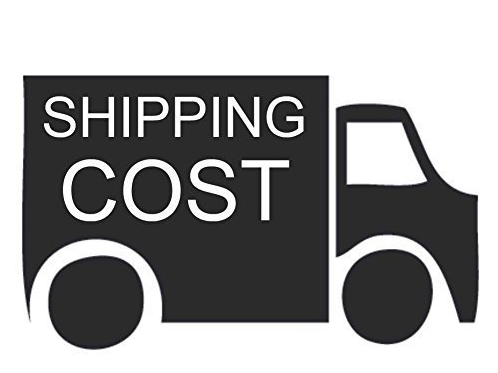
Understanding the cost factors involved in door-to-door shipping can help businesses budget effectively and identify areas for optimization.
Breakdown of Typical Costs Involved
Here’s a breakdown of typical costs associated with door-to-door shipping:
| Cost Component | Description |
|---|---|
| Freight Charges | The cost of transporting goods, varies by shipping method (air, sea). |
| Customs Duties and Taxes | Tariffs imposed by the Algerian government on imported goods. |
| Insurance | Optional cost to insure goods against loss or damage. |
| Handling Fees | Charges for loading, unloading, and handling the goods. |
| Documentation Fees | Costs associated with preparing necessary shipping documents. |
Factors Affecting Pricing
Several factors can influence the pricing of door-to-door shipping:
- Shipping Method: Air freight is generally more expensive than sea freight.
- Weight and Volume: Heavier and bulkier shipments typically incur higher costs.
- Distance and Route: Longer distances and complex routes may increase shipping costs.
- Market Conditions: Fluctuations in fuel prices and demand can affect freight rates.
Tips for Cost Optimization
To optimize shipping costs, consider the following strategies:
- Consolidate Shipments: Combine multiple smaller shipments into a single larger shipment to utilize FCL rates.
- Negotiate Rates: Discuss potential discounts with freight forwarders based on shipping volume or frequency.
- Choose the Right Shipping Method: Analyze the urgency of the shipment to select the most cost-effective shipping method.
By understanding these elements of customs, documentation, and cost factors, businesses can navigate the complexities of door-to-door shipping from China to Algeria effectively. A reliable partner like Dantful International Logistics can provide invaluable support throughout the shipping process.
Transit Times in Door-to-Door Shipping
Understanding transit times is essential for businesses engaged in door-to-door shipping from China to Algeria. Different shipping methods offer varying delivery speeds, which can significantly impact planning and inventory management.
Estimated Durations for Different Shipping Methods
The estimated delivery times for various shipping methods are as follows:
| Shipping Method | Estimated Transit Time |
|---|---|
| Air Freight | 3 to 7 days |
| Sea Freight (FCL) | 20 to 30 days |
| Sea Freight (LCL) | 25 to 35 days |
| Express Shipping | 2 to 5 days |
These times can vary based on factors such as the specific routes taken, customs clearance procedures, and any unforeseen delays.
Factors That Can Affect Delivery Times
Several factors can influence delivery times in door-to-door shipping, including:
- Weather Conditions: Adverse weather can delay transportation, especially for air cargo.
- Customs Clearance: Delays at customs can significantly impact overall transit times. Proper documentation can mitigate this risk.
- Shipping Volume and Capacity: High shipping volumes can lead to congestion, particularly in busy ports, affecting delivery schedules.
- Transportation Method: Choosing between air, sea, or express shipping can drastically change delivery times due to speed differences.
- Operational Issues: Unforeseen circumstances, such as mechanical failures or labor disputes, can also lead to delays.
Challenges and How to Overcome Them
Shipping from China to Algeria presents unique challenges that businesses must navigate to ensure successful deliveries.
Common Issues in China-Algeria Shipping
- Regulatory Compliance: Variations in import/export regulations can complicate shipping.
- Customs Delays: Insufficient or incorrect documentation can lead to prolonged customs clearance times.
- Logistical Coordination: Coordinating multiple transportation methods can pose logistical challenges.
- Rising Freight Costs: Fluctuating fuel prices and demand can increase overall shipping costs.
- Cultural Differences: Distinctions in business practices may lead to communication barriers.
Strategies to Mitigate Risks and Delays
To address these challenges, businesses can implement the following strategies:
- Engage an Experienced Freight Forwarder: Partnering with a knowledgeable logistics provider can help navigate complexities and ensure compliance with regulations.
- Invest in Technology: Utilize tracking systems and software to monitor shipments in real time, allowing for proactive management of delivery times.
- Prepare Thorough Documentation: Ensure that all required documents are accurate and complete to avoid customs delays.
- Plan for Contingencies: Develop contingency plans for potential disruptions, such as alternate shipping routes or methods.
- Maintain Clear Communication: Foster open communication with all parties involved in the shipping process to quickly address any issues that arise.
FAQs
Common Questions About Door-to-Door Shipping from China to Algeria
- What is the most cost-effective shipping method from China to Algeria?
Sea freight is generally the most economical option, particularly for larger shipments or if time is not a critical factor. - How long does it take to ship goods from China to Algeria?
Transit times can vary significantly based on the shipping method selected. Air freight can take 3 to 7 days, while sea freight can take 20 to 35 days. - What documents are necessary for shipping?
Key documents include the commercial invoice, packing list, bill of lading, customs declaration, and any applicable licenses. - How can I avoid customs delays in Algeria?
Ensuring accurate and complete documentation and engaging a customs broker can help facilitate smoother customs clearance. - Is door-to-door shipping more expensive?
While door-to-door shipping often includes additional services, it can save time and reduce hassle, making it a cost-effective solution for many businesses.

Young Chiu is a seasoned logistics expert with over 15 years of experience in international freight forwarding and supply chain management. As CEO of Dantful International Logistics, Young is dedicated to providing valuable insights and practical advice to businesses navigating the complexities of global shipping.












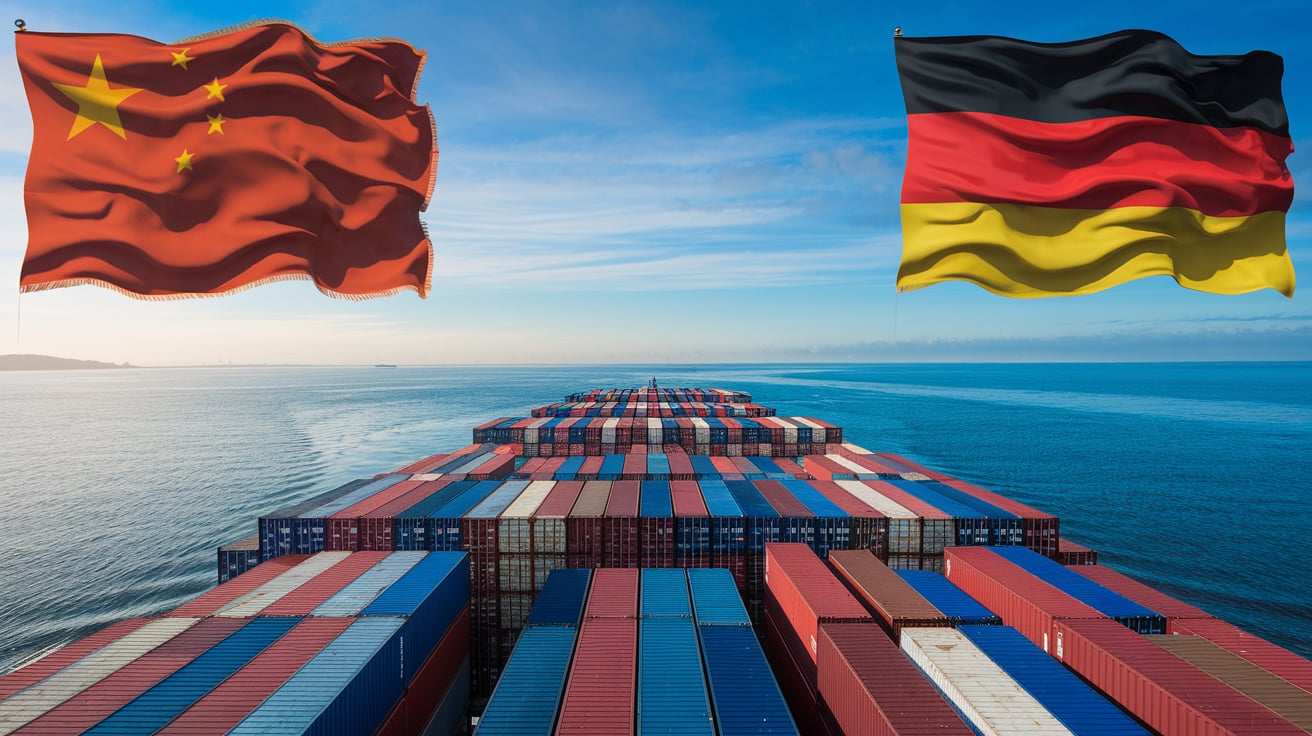
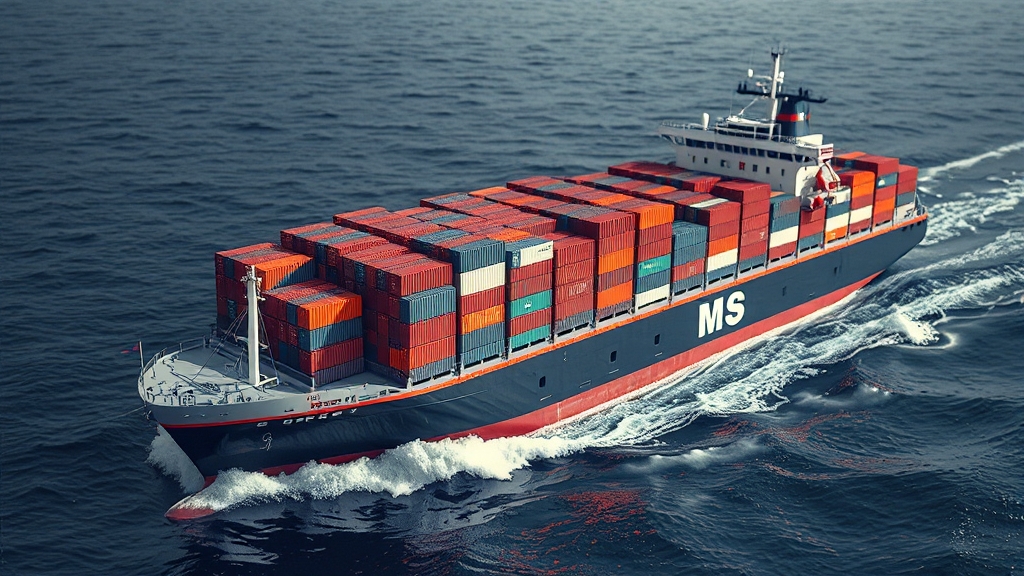







 Afrikaans
Afrikaans Shqip
Shqip አማርኛ
አማርኛ العربية
العربية Հայերեն
Հայերեն Azərbaycan dili
Azərbaycan dili Euskara
Euskara Беларуская мова
Беларуская мова বাংলা
বাংলা Bosanski
Bosanski Български
Български Català
Català Cebuano
Cebuano Chichewa
Chichewa 简体中文
简体中文 繁體中文
繁體中文 Corsu
Corsu Hrvatski
Hrvatski Čeština
Čeština Dansk
Dansk Nederlands
Nederlands English
English Esperanto
Esperanto Eesti
Eesti Filipino
Filipino Suomi
Suomi Français
Français Galego
Galego ქართული
ქართული Deutsch
Deutsch Ελληνικά
Ελληνικά Kreyol ayisyen
Kreyol ayisyen Harshen Hausa
Harshen Hausa Ōlelo Hawaiʻi
Ōlelo Hawaiʻi עִבְרִית
עִבְרִית हिन्दी
हिन्दी Hmong
Hmong Magyar
Magyar Íslenska
Íslenska Igbo
Igbo Bahasa Indonesia
Bahasa Indonesia Gaeilge
Gaeilge Italiano
Italiano 日本語
日本語 Basa Jawa
Basa Jawa ಕನ್ನಡ
ಕನ್ನಡ Қазақ тілі
Қазақ тілі ភាសាខ្មែរ
ភាសាខ្មែរ 한국어
한국어 كوردی
كوردی Кыргызча
Кыргызча ພາສາລາວ
ພາສາລາວ Latin
Latin Latviešu valoda
Latviešu valoda Lietuvių kalba
Lietuvių kalba Lëtzebuergesch
Lëtzebuergesch Македонски јазик
Македонски јазик Malagasy
Malagasy Bahasa Melayu
Bahasa Melayu മലയാളം
മലയാളം Maltese
Maltese Te Reo Māori
Te Reo Māori मराठी
मराठी Монгол
Монгол ဗမာစာ
ဗမာစာ नेपाली
नेपाली Norsk bokmål
Norsk bokmål پښتو
پښتو فارسی
فارسی Polski
Polski Português
Português ਪੰਜਾਬੀ
ਪੰਜਾਬੀ Română
Română Русский
Русский Samoan
Samoan Gàidhlig
Gàidhlig Српски језик
Српски језик Sesotho
Sesotho Shona
Shona سنڌي
سنڌي සිංහල
සිංහල Slovenčina
Slovenčina Slovenščina
Slovenščina Afsoomaali
Afsoomaali Español
Español Basa Sunda
Basa Sunda Kiswahili
Kiswahili Svenska
Svenska Тоҷикӣ
Тоҷикӣ தமிழ்
தமிழ் తెలుగు
తెలుగు ไทย
ไทย Türkçe
Türkçe Українська
Українська اردو
اردو O‘zbekcha
O‘zbekcha Tiếng Việt
Tiếng Việt Cymraeg
Cymraeg יידיש
יידיש Yorùbá
Yorùbá Zulu
Zulu